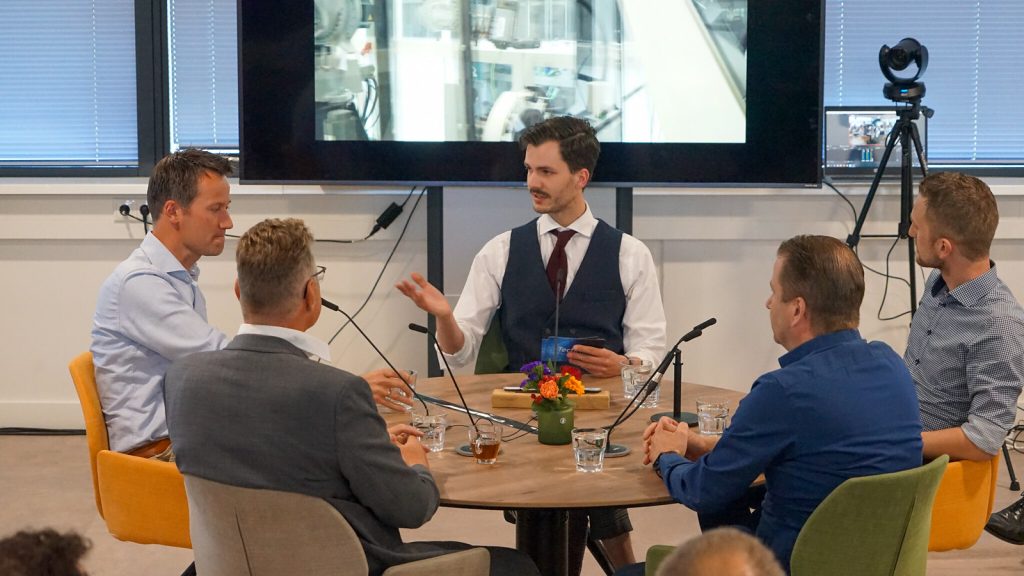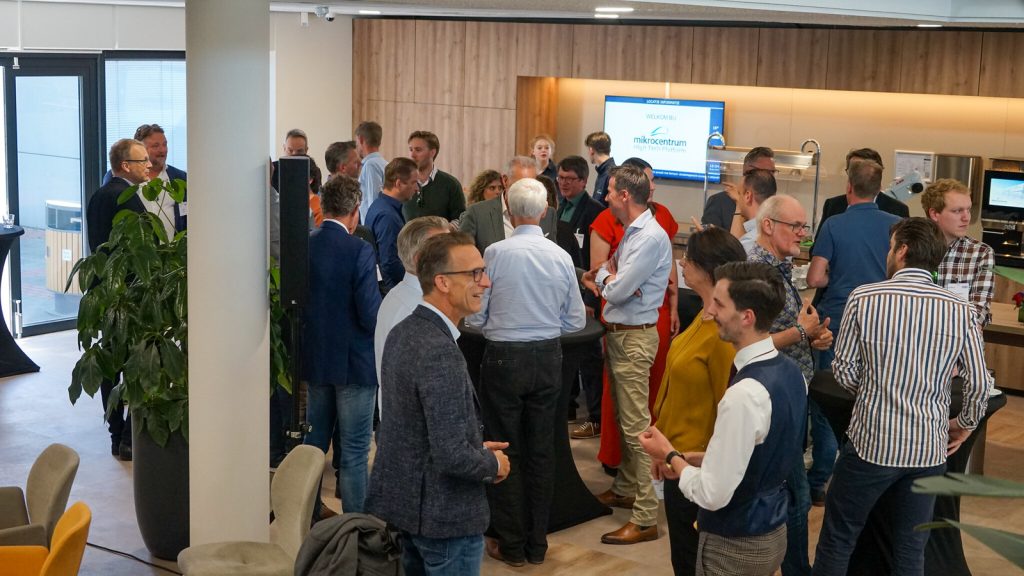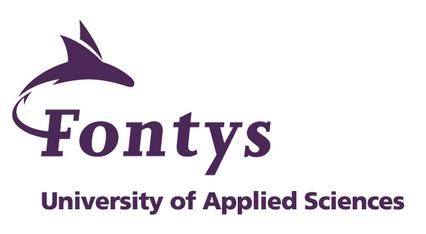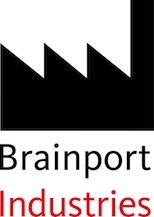This is the Techcafé
The first edition of the Tech cafe was a success. It was a great collaboration between the DSPE and the Mikrocentrum.
On April 28, a large group of interested people listened to a conversation between Mikrocentrum’s High Tech Platform Manager Maarten Roos and four robotization specialists: Heico Sandee (CTO and founder of Smart Robotics), Mark Stappers (Teacher/researcher at Fontys), Wouter Kuijpers (Program Officer at Eindhoven University of Technology) and Martin van der Have (Sales & Marketing Manager at ABB Robotics). Their message turned out to be twofold. On the one hand, they noted a considerable backlog and just as many barriers around the introduction of industrial robots, but at the same time their appeal to the SME present was also to start with it after all.
“It’s like using a smartphone or a PC,” says Martin van der Have. “The first time always hurts. It’s the same with robots. That won’t be an instant success, but the learning curve you go through that way will eventually get you where you want to be. Driving business forward It is wise not to go through this process alone, he adds. “Talk to parties who have done it before. Learn from them, make plans together. At some point you will find out that it is doable and that you can even earn money with it. After all, that is what it is all about as an entrepreneur: that you help your business move forward.”
The fact that in a full hall only two entrepreneurs raised their hands to Maarten Roos’s question who already works with robots, is additional proof for him of the usefulness of a meeting like this. “Looks like SMEs are first trying to figure out what to do. Maybe they’re waiting for it to be plug and play, just like with today’s iPhone.”
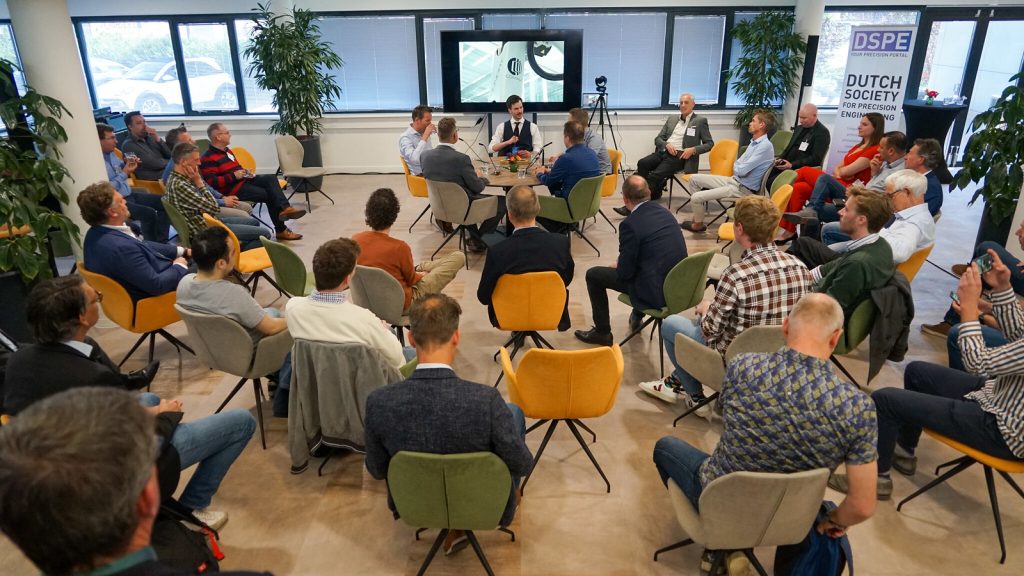
Wouter Kuijpers also sees the task for science in better functionality of the robots. “We want smarter robots, in other words robots that will actually understand more and more on their own. Which you might be able to give higher-level commands to. As a user, you no longer have to teach such a robot everything to ensure that the instructions are clear.”
Heico Sandee; “There is a lot of knowledge about robots in science, but in practice it is still relatively little used. We based our idea of a ‘staff agency for robots’ on that. This is how we wanted to put the technology into practice. But that was a bit disappointing. Because in practice, those robots are not yet that flexible at all. We ran into things very practically. From a distance it always seems much simpler than in hard practice. We spent hours and days puzzling to solve the smallest details. Sorting booklets and putting them in a box sounds simple, doesn’t it? But if two covers stick together for a while, the whole system is messed up.”
“The decisive factor in all those considerations is the goal you have with the robotization says Mark Stappers. We are often asked what a company can do with robotics. Something like: ‘we have a robot and we want to automate, what now?’ We always try to get that question out of the robot sphere first and find out what the processes in such a company are and what they actually want. Just having a pot of money and buying a robot, well, that’s not enough. You also really have to have an idea, also for the business. Our students act as executors of applied research.”
The four speakers understand all too well that SMEs still want to keep an eye on things. Ease-of-use and robustness, including making the robots smarter, which are still “relatively stupid” at this stage of development, are all seen as one of the most important challenges for the coming years. But people are needed for that, we hear in unison. Researchers, developers, specialists, “if the Netherlands wants to maintain its reputation as a knowledge economy – and can rise above Belgium in robot development to begin with – more is really needed in talent development than we are showing now.”
